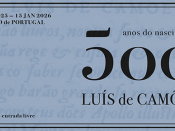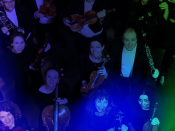Por David Raposo (Google DeepMind).
Abstract: Our world can be succinctly and compactly described as structured scenes of objects and relations. A typical room, for example, contains salient objects such as tables, chairs and books, and these objects typically relate to each other by their underlying causes and semantics. Humans exploit knowledge of objects and their relations for learning a wide spectrum of tasks and this is reflected in our ability to understand the scenes and situations around us. However, this has proved to be a difficult problem for artificial intelligence. In this talk I am going to introduce Relation Networks (RNs), a general purpose neural network architecture for object-relation reasoning that we have recently developed at Google DeepMind. RNs are capable of learning to reason about the relations between objects and their properties and, hence, a powerful architecture for scene understanding and other problems that require relational reasoning. I will also talk about how we applied this neural network to develop an artificial agent that learned to play StarCraft-2 and, for the first time, surpassed a professional player in the game.
Bio: David Raposo is a Senior Research Scientist in Artificial Intelligence at Google DeepMind, London. His work combines deep-learning and reinforcement learning and has focused on the development of novel neural network architectures for scene understanding and relational reasoning. He graduated in Engenharia Informática at Faculdade de Ciências da Universidade de Lisboa, where he collaborated with the Natural Language and Speech Group (NLX), from the Informatics Department at FCUL. He has a PhD in Neuroscience from the Champalimaud Neuroscience Program. During his doctoral research at Cold Spring Harbor Laboratory, in New York, he developed behavioral tasks, neural recording techniques in animals and machine-learning techniques for the study of decision-making and multisensory integration.





















